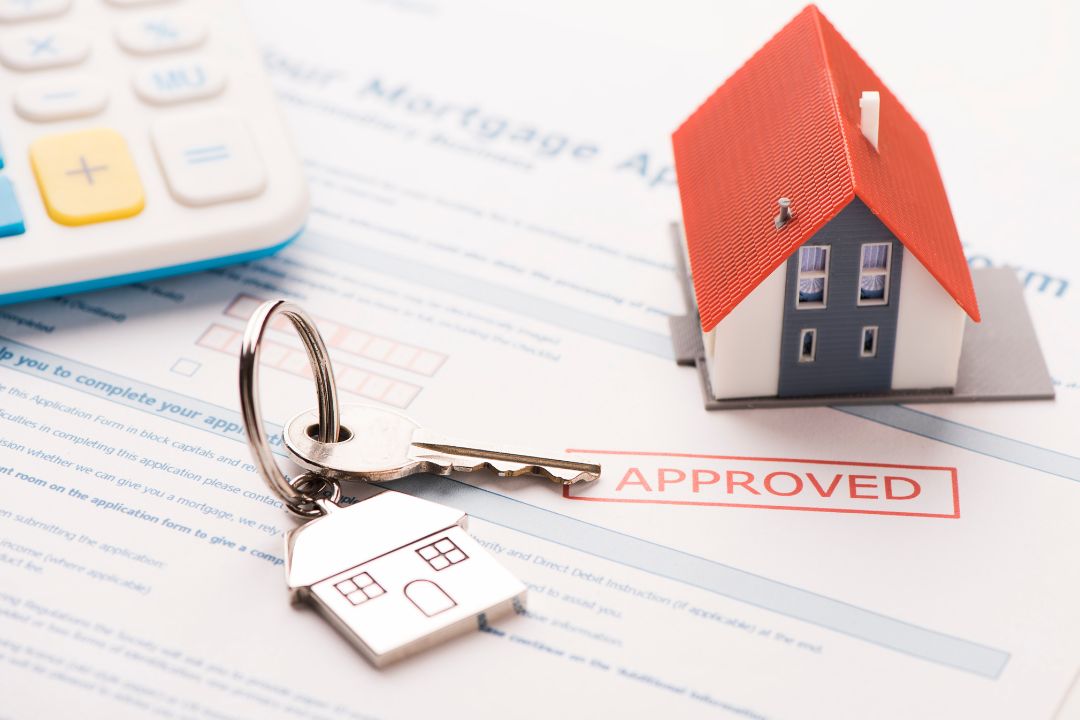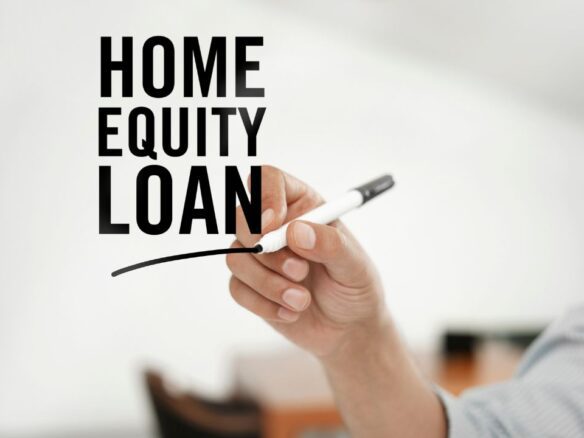Are you planning to buy a new house or property? If yes, then you might need to apply for a mortgage loan to finance it. A mortgage loan is a type of loan used to purchase a property. Where the borrower has to repay the amount with interest over a set period of time. Applying for a mortgage can be a daunting task, especially if you are a first-time homebuyer. Here are the top ways to improve your chances of getting approved for a mortgage.
Check Your Credit Score
The first and foremost thing that lenders look at is your credit score. Before you try to get a mortgage loan, you must check your credit score. A credit score is a number that shows how creditworthy you are. If you have a low credit score, you may have to pay a higher interest rate or have your application turned down. So, the best way to raise your credit score is to pay your bills on time. Keep your credit usage low and dispute any mistakes on your credit report.
Save for a Down Payment
You may also have a better chance of getting a mortgage loan if you save up for a down payment. A down payment is the amount of money you pay upfront as a share of the total price of the property. When you make a bigger down payment, you need to borrow less money. Which makes you a more attractive candidate for a mortgage loan. Also, a bigger down payment could lead to better terms and lower interest rates.
Maintain Stable Employment
Lenders also look at your employment history and stability. If you have a steady job and income, it means you are less likely to stop making your mortgage payments. Before applying for a mortgage loan, it’s important to keep the same job and not make any big changes, like switching jobs or starting a new business.
Reduce Your Debt-to-Income Ratio
Your debt-to-income ratio (DTI) is the amount of money you spend each month on debt compared to how much money you make each month. If your DTI is high, it may be hard to get a mortgage loan. Because it shows that you may have trouble making your mortgage payments. A DTI of less than 43% will increase your chances of getting approved.
Get Pre-Approved for a Mortgage
Getting pre-approved for a mortgage loan can also make it easier for you to get a mortgage loan. During the pre-approval process, the lender looks at your finances and decides how much you can borrow. Pre-approval lets you know how much house you can afford and shows sellers that you are a serious buyer.
Work with a Mortgage Broker
Your chances of getting a mortgage loan can also go up if you work with a mortgage broker. A mortgage broker can help you find the best rates and terms for a mortgage from several different lenders. A mortgage broker can also help you understand the terms and conditions of the loan and guide you through the mortgage process.
Provide Complete and Accurate Information
Your chances of getting a mortgage loan can also go up if you give complete and correct information on your mortgage application. Lenders check the information you give them, and mistakes or missing information can cause delays or rejections. So, it’s very important to make sure that all the information you give is correct and up-to-date.
Improve Your Debt Payment History
Your debt payment history is a record of how you’ve paid off your debts in the past. A good history of paying your bills on time shows that you are responsible and can be counted on to pay your bills on time. To improve your debt payment history, you should pay all your bills on time, including credit cards and other loans. If you pay your bills late or don’t pay them at all, it can hurt your credit score and make it harder for you to get a mortgage loan.
Keep Your Finances Stable
Lenders also look at your income, expenses, and assets to see how stable your finances are as a whole. Before you apply for a mortgage loan, you need to make sure your finances are stable and don’t go through any big changes. This means not making big purchases, opening new credit accounts, or taking on new debt.
Consider a Co-Signer
If your credit score is low or your DTI is high. You may still be able to get a mortgage loan with the help of a co-signer. A co-signer is someone who agrees to be responsible for the loan if you can’t pay it back. Adding a co-signer can increase your chances of being approved because it gives the lender more security.
Shop Around for Mortgage Rates
You may also have a better chance of getting a mortgage loan if you shop around for mortgage rates. Different lenders offer different rates and terms, so it’s important to look at more than one offer before choosing a lender. This can help you find the best mortgage rates and terms that fit your financial situation.
Think about loans backed by the government
If you are buying a home for the first time or have a low credit score, you may be able to get a loan from the government, such as an FHA loan, a VA loan, or a USDA loan. These loans have lower requirements for both credit score and down payment, which makes them easier to get for people who might not be able to get conventional loans.
Set aside a lot of cash
You may also have a better chance of getting a mortgage loan if you have a lot of cash saved up. A cash reserve is the amount of money you have saved up that can cover your monthly mortgage payments for a certain amount of time, usually six to twelve months. If you have a lot of cash on hand, it means you have a safety net in case something unexpected happens that makes it hard for you to pay your mortgage.
Don’t make big changes to your money
Avoid making any significant financial changes such as buying a new car, quitting your job, or changing your income source before applying for a mortgage loan. Lenders like to work with people whose finances are stable, and if yours changes in a big way, they may be less likely to approve your mortgage application.
Be Patient
Lastly, it’s important to be patient during the whole process of applying for a mortgage. Getting a mortgage loan can take a few weeks or even a few months. Don’t give up if your application is turned down or if you don’t get the terms you want. Keep working to improve your finances, and when the time is right, try again.
In the end, it takes a lot of planning and hard work to get approved for a mortgage loan. By following these top ways to improve your chances of getting approved for a mortgage, you can increase your chances of success and make your dream of homeownership a reality.
FAQs
What is a good credit score for getting approved for a mortgage loan?
Most of the time, a credit score of 620 or higher is good enough to get a mortgage loan.
Can a co-signer help me get approved for a mortgage loan?
Yes, adding a co-signer can improve your chances of getting approved for a mortgage loan, especially if you have a low credit score or a high DTI.
How much down payment do I need to make to get approved for a mortgage loan?
The amount of the down payment depends on the type of loan and the lender. In general, a 20% or higher down payment is best, but some loans may only require a 3% down payment.







Join The Discussion